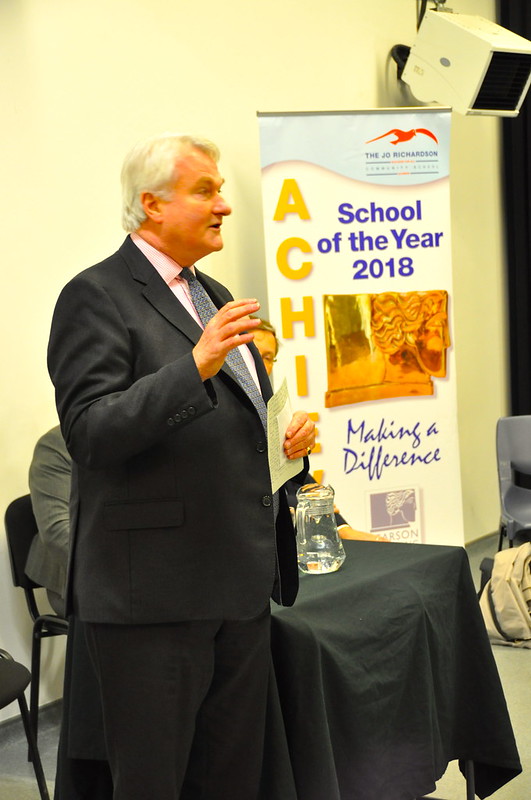Lord Chief Justice Visits Dagenham School to talk to pupils about the role of the judiciary
 The Lord Chief Justice of England and Wales visited the Jo Richardson Community School in Dagenham, yesterday, to give pupils an insight into the purpose of the judiciary and the rule of law.
The Lord Chief Justice of England and Wales visited the Jo Richardson Community School in Dagenham, yesterday, to give pupils an insight into the purpose of the judiciary and the rule of law.
The visit was part of the judiciary’s school’s engagement national outreach programme (opens in a new tab), established to educate pupils about the work of judges and the judiciary from a young age.
He was accompanied to the school by local Diversity and Community Relations judges, His Honour Judge Jaron Lewis (who works with the school on the Limitless London Project giving career guidance to young people), Her Honour Karen Walden-Smith and Tribunal Judge Ita Farrelly.
The visit continues the work that Diversity and Community Relations Judges (DCRJs) and magistrates already undertake in the community; the Lord Chief Justice hopes that their work – often unseen and unsung – will help encourage students from all backgrounds to think about a career in the justice system.
Speaking at the school, the Lord Chief Justice said: “The rule of law is fundamental to our British way of life. Every day, many thousands of judges make decisions which affect people’s lives, and their livelihoods. But most people have little idea of what goes on unless they find themselves in the system.
“I want to make it easier for schools to help teach pupils about the justice system, and how it really works – I want to invite students to talk to us about our work. We already know that having a discussion with a real judge is very popular with school students. I want to make this opportunity more widely available to schools by asking them to consider inviting judges to visit and give them access to other resources that support their curriculum, and their careers conversations with students.
“There are judges from all walks of life and at many various levels in courts and tribunals. I also want to send the message to all students, from whatever background, they could be the lawyers and judges of the future.”
